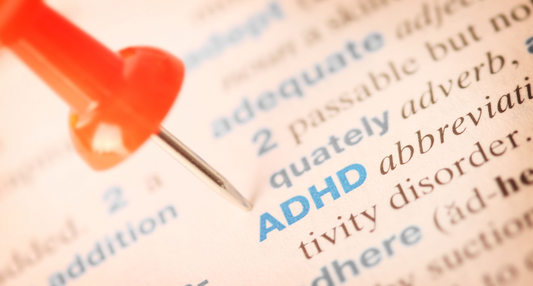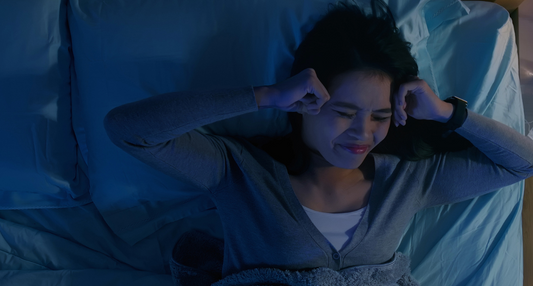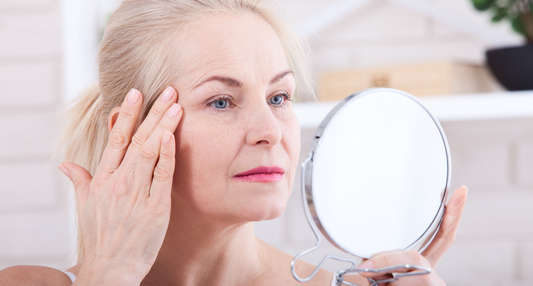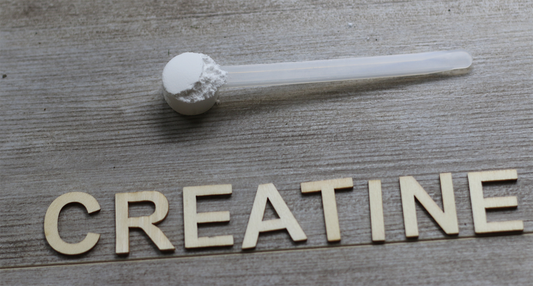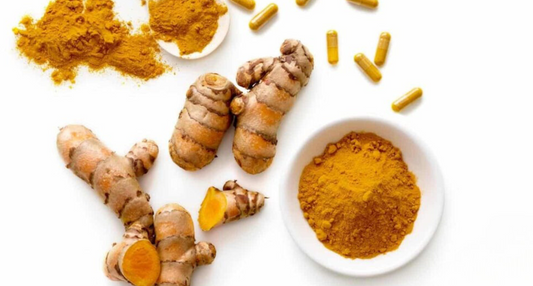Is It Hot In Here? Hot Flashes And Remedies – What Really Works

Share
Understanding Hot Flashes
Hot flashes or flushing and night sweats are a common symptom as you transition into perimenopause and menopause. Hot flashes are a vasomotor symptom (VMS) and will vary in each person. During perimenopause and menopause the shift in estrogen and progesterone create a chain reaction, which includes vasomotor changes such as hot flashes, night waking, blood pressure changes, and heart racing or palpitations. 1 It may seem that no one is talking about them, or perhaps everyone is talking about them but not in a helpful way! There are many urban legends related to hot flashes and many women have faint memories of their mothers or grandmothers talking about these periods of sudden flushing and sweating. Yet there is not a lot of talk about what to do when hot flashes hit in the middle of the night or in the middle of your presentation at work! Understanding them is the first step.
What Causes Hot Flashes?
If you are experiencing hot flashes, you are not alone. Women across many cultures 2-5 are experiencing them, and remedies have been studied extensively. My mission is to help you better understand what is happening to your body and learn what may help to reduce your hot flash symptoms. Hot flashes start in the brain, the hypothalamus to be exact, and the hypothalamus, in conjunction with the pituitary gland, are the glands that regulate hormones and act as the body’s thermostat. In perimenopause leading to menopause, estrogen and progesterone production changes and drops signaling to the hypothalamus that our body temperature needs attention. In the case of hot flashes, the hypothalamus receives a signal that your body temperature is rising and causes the flash, signaling the body to then cool down or re-regulate. In essence, a hot flash is a sign that your body is doing just what it needs to do for homeostasis and balance.
Unfortunately, hot flashes are often bothersome, come at the most inopportune times, and can disrupt our sleep and everyday life. 6 What are you to do? Many women try a bunch of things at once and feel like they are throwing things at the wall to see what ‘sticks’ and often coming up more frustrated and stressed.
Hot Flash Remedies
The remedies available fall into three main categories: over the counter (OTC), lifestyle changes and prescription medication which includes hormone replacement therapy (HRT). Let’s start with OTC remedies, as they are often the most misunderstood.
Over The Counter Hot Flash Remedies
There are numerous OTC treatments that have been passed down, touted in the mainstream news or women’s magazines to include tinctures, herbal teas or remedies, and supplements. The most common are Black Cohosh, Kava, and Primrose Oil, Vitamin E, Chinese teas, but there are many others. Unfortunately the research is too inconclusive to demonstrate a significant impact on reducing the number of or intensity of hot flashes or night sweats. 7-12 Decades of case studies, surveys and clinical trials with different non hormonal treatments just show too many variables, and some contraindications for some women with OTC remedies. Often the placebo effect with OTC is strong enough. I recommend you research your OTC options and discuss your findings with your doctor.
Lifestyle Changes
Lifestyle changes can help manage symptoms associated with hot flashes. These changes include exercise, weight management and mind/body techniques such as yoga. 13-16 It is thought that these changes work because they may reduce stress and help the brain and body function well. However, women who have made these lifestyle changes may still experience hot flashes, leading them to feel frustrated and still sweating in the boardroom or bedroom.
Prescription Hot Flash Remedies
The next category of remedies may include antidepressants, 15, 17 and other non hormone medications 18, as well as hormone replacement therapies 19-20. The use of selective serotonin reuptake inhibitors (SSRI) or antidepressants have seemingly had some good results in reduction of the number of and intensity of hot flashes. Additionally, clonidine has been used and shown to reduce hot flashes by 15-20 percent. 18 Neurontin, known as Gabapentin, is a medication thought to impact the hypothalamus or the temperature regulation aspect of the brain, and has proven effective at reducing hot flashes. A strong meta-analysis 21 came out in 2020 with follow-up of Nuerontin as a leading contender for women seeking support from hot flashes. However, many women do not want to go this route.
The third most successful option is considering HRT with your physician. Remember, it is the changes in estrogen and progesterone during perimenopause and menopause that affect the brain (hypothalamus). Therefore either an estrogen or combination of estrogen and progesterone treatment can relieve not only hot flashes, but can also have a significant impact on overall temperature regulation, mood, anxiety and many other symptoms. HRT can come in gel, patches, rings, or oral form and when used in the dosage appropriate for you, it is a great way to combat hot flashes. 15, 18, 19
In summary, hot flashes and night sweats are a common symptom, however you do not need to suffer in sweat and silence. Reach out to your doctor or dig into our materials at The Galveston Diet.




